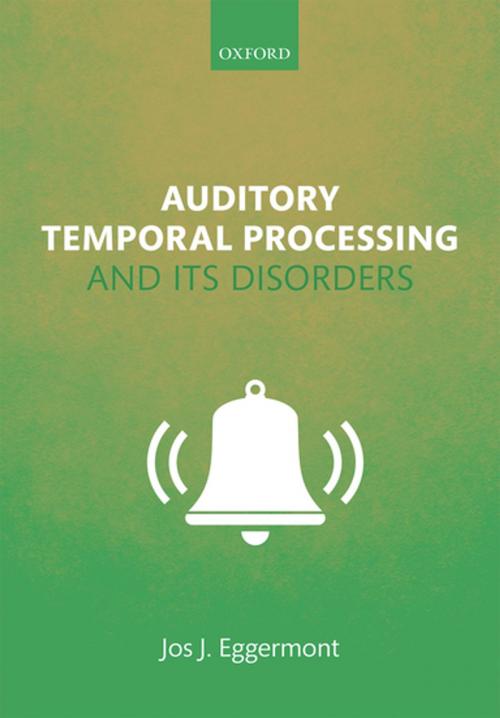Auditory Temporal Processing and its Disorders
Nonfiction, Health & Well Being, Medical, Specialties, Internal Medicine, Neuroscience, Science & Nature, Science| Author: | Jos J. Eggermont | ISBN: | 9780191029196 |
| Publisher: | OUP Oxford | Publication: | April 30, 2015 |
| Imprint: | OUP Oxford | Language: | English |
| Author: | Jos J. Eggermont |
| ISBN: | 9780191029196 |
| Publisher: | OUP Oxford |
| Publication: | April 30, 2015 |
| Imprint: | OUP Oxford |
| Language: | English |
'Auditory temporal processing' determines our understanding of speech, our appreciation of music, our ability to localize a sound source, and even to listen to a person in a noisy crowd. Sound is dynamic and as such has temporal and spectral content. In disorders such as auditory neuropathy and MS, problems can occur with these temporal representations of sound, leading to a mismatch between auditory sensitivity and speech discrimination. In dyslexia, specific language impairment, and auditory processing disorders, similar problems occur early in life and set up additional cognitive speech processing problems. It has also been found that in disorders such as autism, schizophrenia and epilepsy, temporal processing deficits can occur. This book reviews comprehensively the mechanisms for temporal processing in the auditory system, looking at how these underlie specific clinical disorders, with implications for their treatment. Written by a prolific researcher in auditory neuroscience, this book is valuable for auditory neuroscientists, audiologist, neurologists, and speech language pathologists.
'Auditory temporal processing' determines our understanding of speech, our appreciation of music, our ability to localize a sound source, and even to listen to a person in a noisy crowd. Sound is dynamic and as such has temporal and spectral content. In disorders such as auditory neuropathy and MS, problems can occur with these temporal representations of sound, leading to a mismatch between auditory sensitivity and speech discrimination. In dyslexia, specific language impairment, and auditory processing disorders, similar problems occur early in life and set up additional cognitive speech processing problems. It has also been found that in disorders such as autism, schizophrenia and epilepsy, temporal processing deficits can occur. This book reviews comprehensively the mechanisms for temporal processing in the auditory system, looking at how these underlie specific clinical disorders, with implications for their treatment. Written by a prolific researcher in auditory neuroscience, this book is valuable for auditory neuroscientists, audiologist, neurologists, and speech language pathologists.















